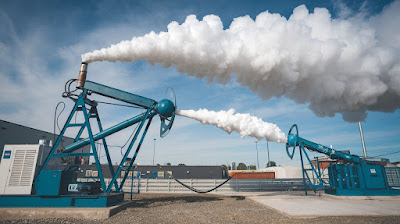Refrigerant gases play a fundamental role in air conditioning and refrigeration systems. However, many of them have raised environmental concerns, especially due to their impacts on global warming and the destruction of the ozone layer. In recent years, the search for more sustainable alternatives has intensified, aiming to minimize these harmful effects and contribute to the preservation of the environment.
1. The Impacts of Conventional Refrigerant Gases: Chlorofluorocarbons (CFCs) and hydrochlorofluorocarbons (HCFCs) were widely used in refrigeration systems in the past, but they caused significant damage to the ozone layer, contributing to the increase in ultraviolet radiation on Earth. In addition, many of the refrigerant gases still used, such as hydrofluorocarbons (HFCs), do not directly affect the ozone layer, but have a high global warming potential (GWP), worsening climate change.
2. Regulations and the Transition to Sustainable Alternatives: With the Montreal Protocol and the Kigali Agreement, which aim to reduce the use of high-GWP refrigerants, industries have been forced to seek more sustainable alternatives. These regulations encourage the adoption of refrigerants with a low environmental impact, leading to the progressive phase-out of CFCs, HCFCs and HFCs. This also stimulates innovation in technologies that use less harmful gases or even refrigeration methods that do not rely on traditional chemical compounds.
3. Sustainable Alternatives in Refrigeration: Some of the most environmentally promising refrigerants are natural gases, such as carbon dioxide (CO₂), ammonia (NH₃) and hydrocarbons (such as propane). They have low or no ozone depletion potential and a much lower GWP than HFCs. CO₂, for example, is considered a safe and efficient refrigerant for many industrial applications. In addition, absorption refrigeration and magnetic cooling systems are also emerging as innovative and environmentally responsible alternatives.
The transition to sustainable refrigerants is an urgent need to reduce the environmental impacts of refrigeration and air conditioning systems. With advances in technology and international regulations, the industry is increasingly focused on developing solutions that balance efficiency and sustainability. The adoption of natural refrigerant gases and other innovative technologies will be essential to preserve the environment and mitigate climate change.
